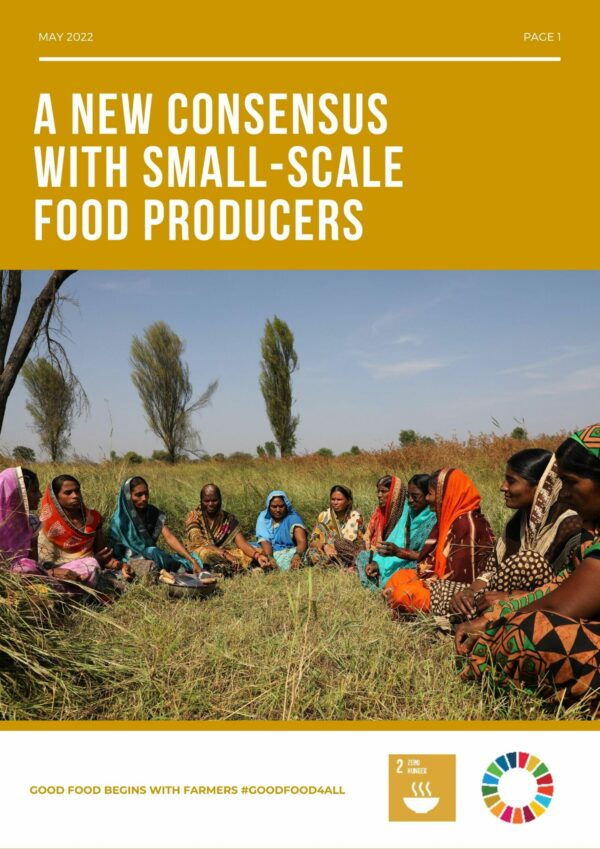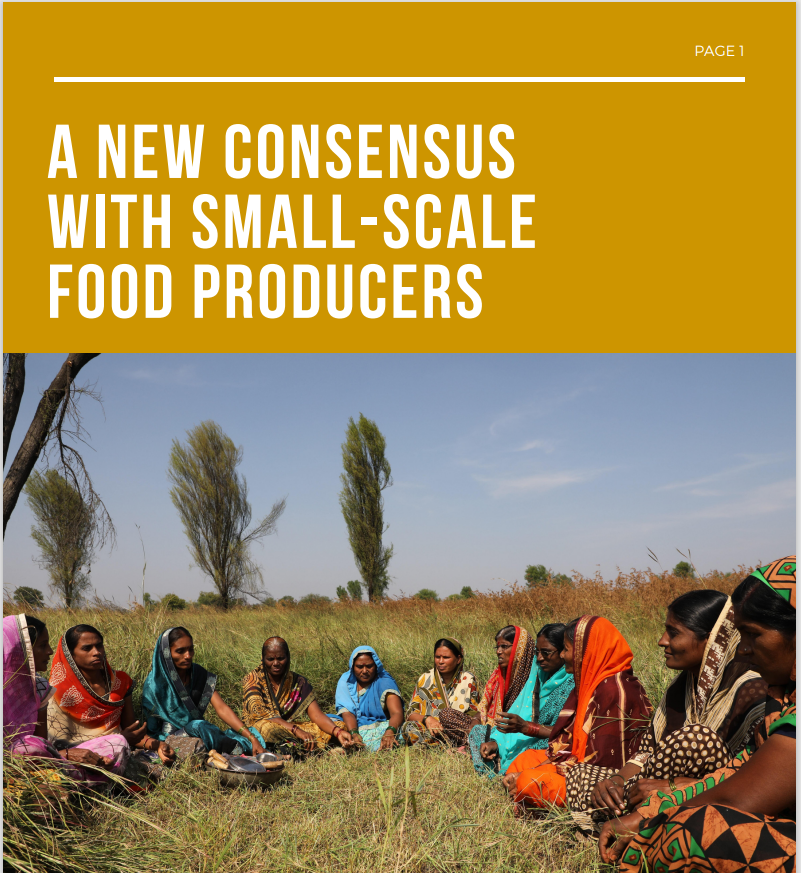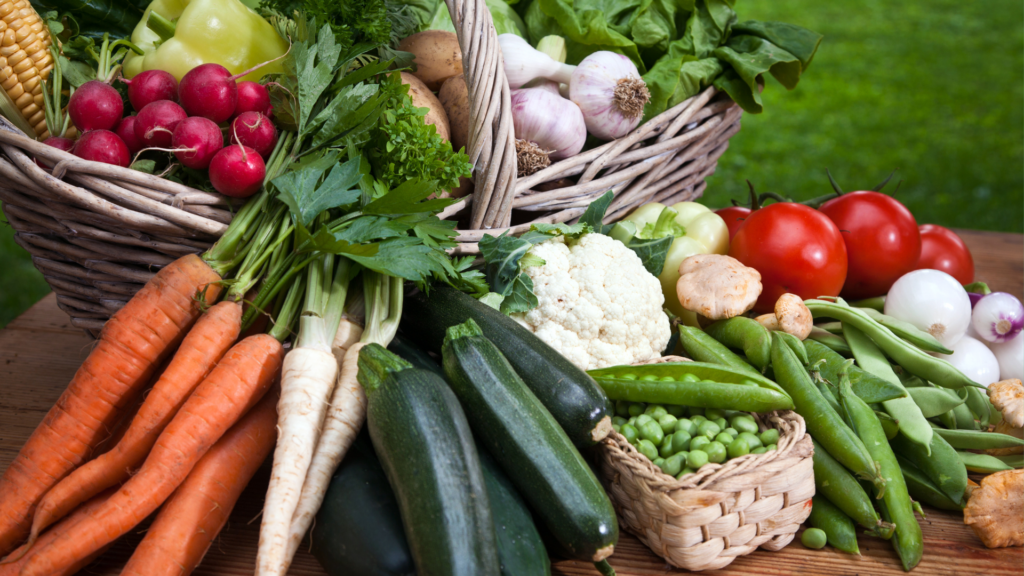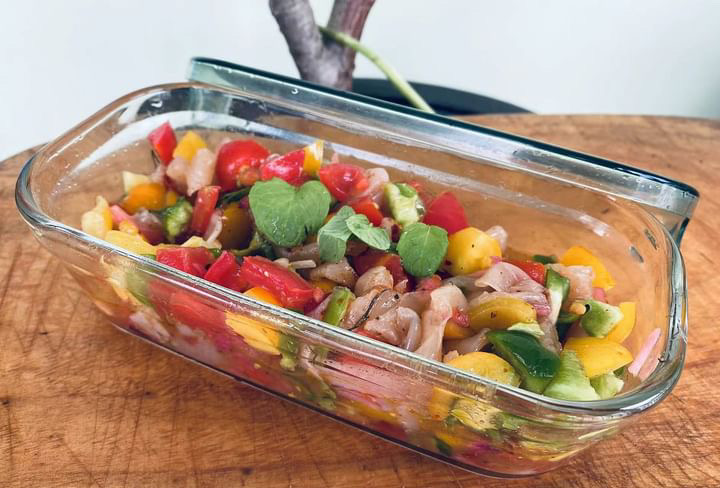What is the New Consensus with Small-Scale Food Producers?
The consensus aims to elevate small-scale food producers’ voices and their policy priorities, as well as align stakeholders around evidence-based solutions. It represents an effort to increase support for small-scale farmers and food producers as they navigate multiple, interconnected pressures and shocks.
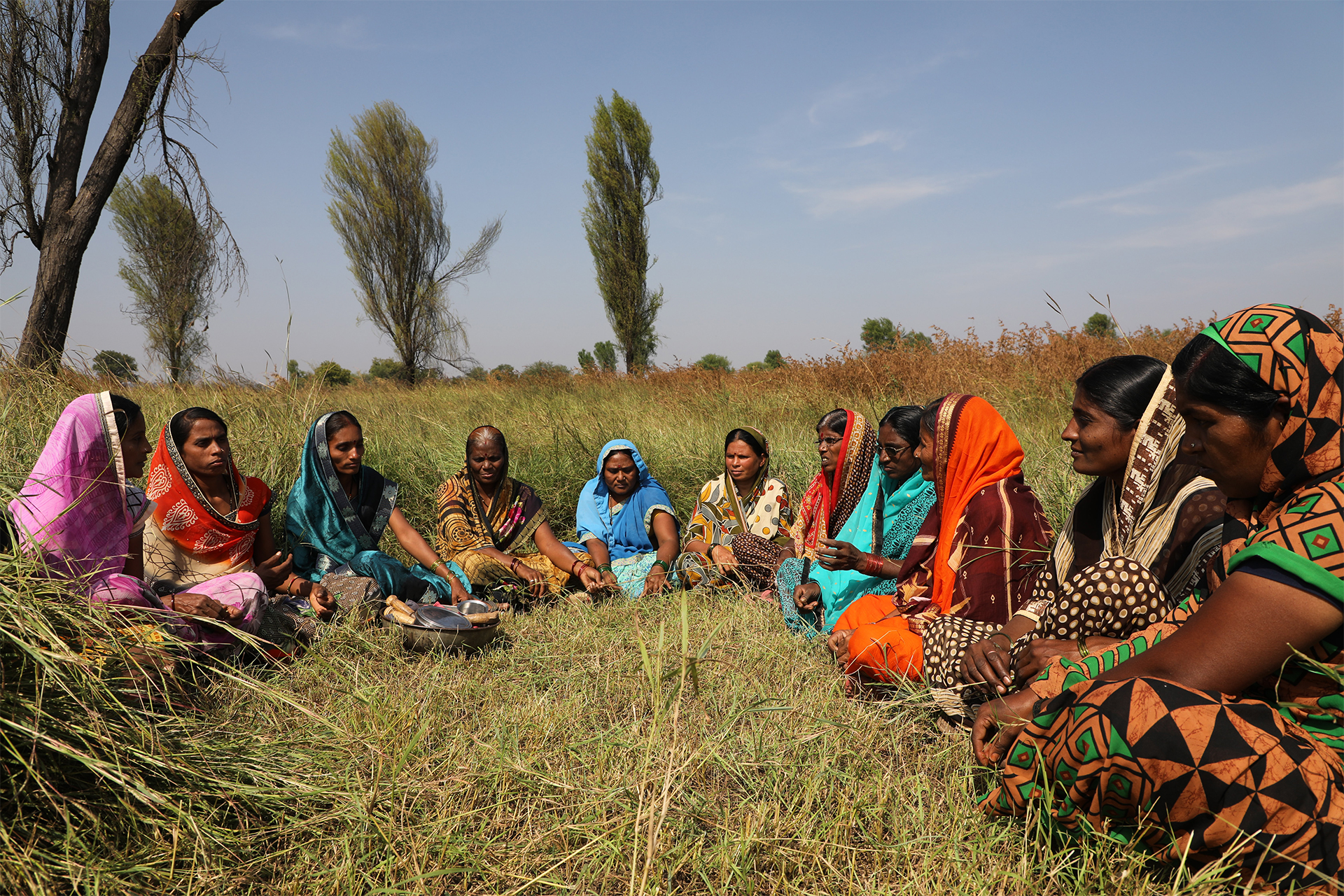
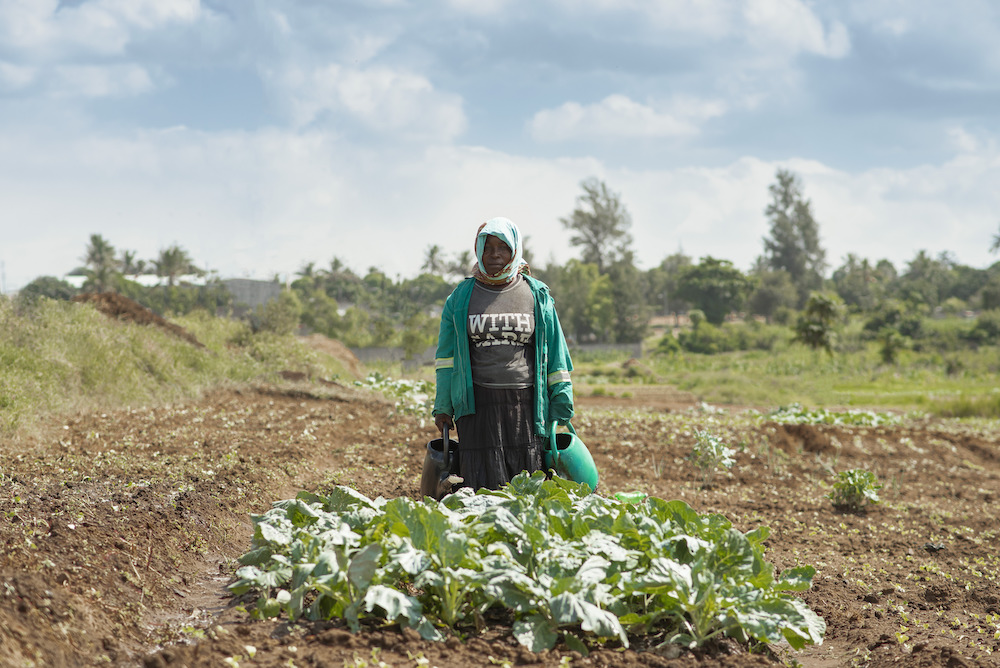
Why do we need it?
Good food begins with farmers. They are at the heart of local, national and regional food systems. They are cultivators, neighbours, entrepreneurs and the key to improving nutrition and health outcomes, revitalising rural communities, and building environmental resilience. Yet by every measure, they are being left behind. The majority live with hunger and poverty and suffer poorer health outcomes. This is simply unacceptable.
FAQs
What is it?
The New Consensus with Small-Scale Food Producers is a collaboratively developed call to action which highlights the critical role small-scale food producers play in global food systems, identifies their most pressing challenges and calls on policy makers to ensure that small-scale food producers are prioritized and involved in the process of developing agricultural policies and programs.
In the current context of the compounding crises of conflict, COVID-19, climate change and economic downturns, the consensus recognizes the unique potential of small-scale food producers to ensure local and regional food and nutrition security. Small-scale food producers help diversify food production and diets, protect agrobiodiversity, maintain and improve soil health, and sustain local markets. Their relative size and proximity put them in a unique position to exponentially increase the impact of agricultural development, building resilience and improving income and health outcomes for people and the planet.
The consensus seeks to amplify their power, align stakeholders around evidence-based priorities, and catalyze action along two thematic areas: direct support and enabling environment. Direct support to small-scale food producers builds on the recommendations in Ceres2030 and includes investing in on the farm solutions, helping to move food to markets and consumers, and empowering the excluded, especially women, youth, and Indigenous Peoples. Building an enabling environment will require stronger policies, financing, regulations, research, data and strategic partnerships to support small-scale producers and small and medium-sized enterprises in the food value chain and promote responsible agricultural investments as well as improve resilience across food systems. Finally, the consensus identifies eight action points to include and prioritize small-scale food producers in policymaking and financing.
Who is it for?
The consensus and call to action provide a framework for action for policymakers, organizations and individuals working towards good food for all, ending hunger and all forms of malnutrition and improving livelihoods, productivity, and agricultural sustainability by 2030, SDG2. Farmers and their representative organizations, governments, research institutions, philanthropy, civil society, and the private sector must work collaboratively to transform global, regional and local food systems. Meaningful partnerships are key to creating an enabling environment and to providing direct support which allows small-scale food producers to prosper, protect the environment, and meet their communities’ nutritional needs. The consensus can foster alignment and accelerate action to meet these goals in the eight remaining harvests to 2030.
Why do we need it?
Good food begins with farmers, including rural food producers, family farmers, pastoralists, livestock breeders, fishers and aquaculturists. They are key to improving nutrition and health outcomes, revitalizing rural communities, and building resilience. And yet, small-scale farmers are often among the most marginalized groups in societies, the poorest of the poor, landless, facing land tenure issues, rural women facing gender-related barriers among others, and struggling to ensure food for themselves and their communities. They are on the frontlines of rising hunger and food insecurity due to climate change, conflict, and economic shocks and by every measure, they are being left behind.
Small-scale food producers, particularly women, Indigenous Peoples, family farmers, pastoralists and fishers are at the center of the eight calls to action. They are creators and innovators, and their voices are essential to decision-making and priority setting.
To meet future needs and to build sustainable, resilient food systems we must invest in their capacities, view them only as receivers of humanitarian aid, or exclude them from plans to build resilient food systems.
Who can sign onto the Consensus?
Everyone who supports small-scale food producers, is working toward equitable, sustainable, and resilient food systems that deliver healthy diets and good food for all, and whose activities do not undermine or disadvantage small-scale food producers! Support from a broad set of stakeholders from farmers’ organizations, civil society, UN agencies, and national and international NGOs to think tanks and research institutions will be crucial to influence global, regional and national policies. Sign the Consensus here.
How was the Consensus formed?
The SDG2 Advocacy Hub worked with partners to develop a new policy consensus, crafted, and signed by smallholder farmers, civil society organisations, governments and international organisations that could contribute to and build on the momentum of 2021 global summits, align policy priorities and drive decision-making and investment, especially as the international community responds to Covid-19 and the unfolding global food crisis due to the broader impact of Russia’s invasion of Ukraine.
In Ceres2030, we now have a strong body of evidence, gathered through modeling and research, that provides the basis for the policy consensus and the priority areas for action. The consensus does not intend to create a new strategy or plan for action. Instead, it is built on existing research, evidence-based guidance, approaches, and agreements. It reflects priorities identified in consultations with smallholder farmers, the UN Food Systems Summit and its national dialogues, the CFS Voluntary Guidelines, the reports of the High Level Panel of Experts on Food Security and Nutrition, the annual UN State of Food Security and Nutrition in the World Reports; and commitments made through the Malabo Declaration and the Comprehensive Africa Agriculture Development Programme (CAADP), at the Food Systems Summit, COP26 and Tokyo Nutrition for Growth. Find the full list on our website.
Farmers’ organizations, research institutions, advocates, policymakers and civil society organizations and more participated in side-events and dialogues over the course of a year to learn from one another, reinvigorate partnerships, coordinate efforts, and stand with small-scale food producers.
These include:
- UNFSS Pre-Summit Side Event – July 2021
- AGRF Side Event – September 2021
- CFS 49 Side Event – October 2021
- Farmer Dialogue – February 2022
- Chef Dialogue – April 2022
- An online consultation on a zero draft – March/April 2022
- Farmer Consultation on zero draft – April 2022
How can you use the consensus?
The consensus can be used for advocacy at national and global level. It is a call to action to all stakeholders but underscores the important role of governments, multilateral and nongovernmental organizations and other development actors to ensure that small-scale producers are recognized for their indispensable value in our food systems and will be included in the creation and implementation of solutions to the many interconnected problems we collectively face.
We are excited that more than 60 organizations and individuals have signed the consensus so far. We hope that each organization will use the consensus in their outreach and advocacy to build support for investing in smallholder agriculture at global, regional and national levels.
At the global level, the 2022 World Bank and IMF Annual meetings, G7/G20 Leaders Summits, the UN General Assembly, COP 27 and other global moments provide opportunities to center small-scale food producers. The consensus will be especially crucial as policymakers balance meeting immediate needs with medium and long term plans and actions to address the compounded crises. It can also ensure that there is coordination across all efforts and by all actors. We hope that the global calls to action in the consensus are used to develop context-specific, domestic calls to action that reflect local priorities. We are happy to support you as you think through how to do that.
Where can I find more resources?
Dropbox – PDFs and zip files of the Consensus in English and French which are updated as new individuals and organisations sign on.
Social Media Toolkit – Crafted for your use to spread the word about the Consensus across channels.
Sign on form – English
Sign on form – French
If you would like to get in touch with the team please feel free to email Asma Lateef, Head of Policy and Advocacy at the SDG 2 Advocacy Hub. You can also follow the Hub’s Twitter account for regular social engagement on the Consensus.
